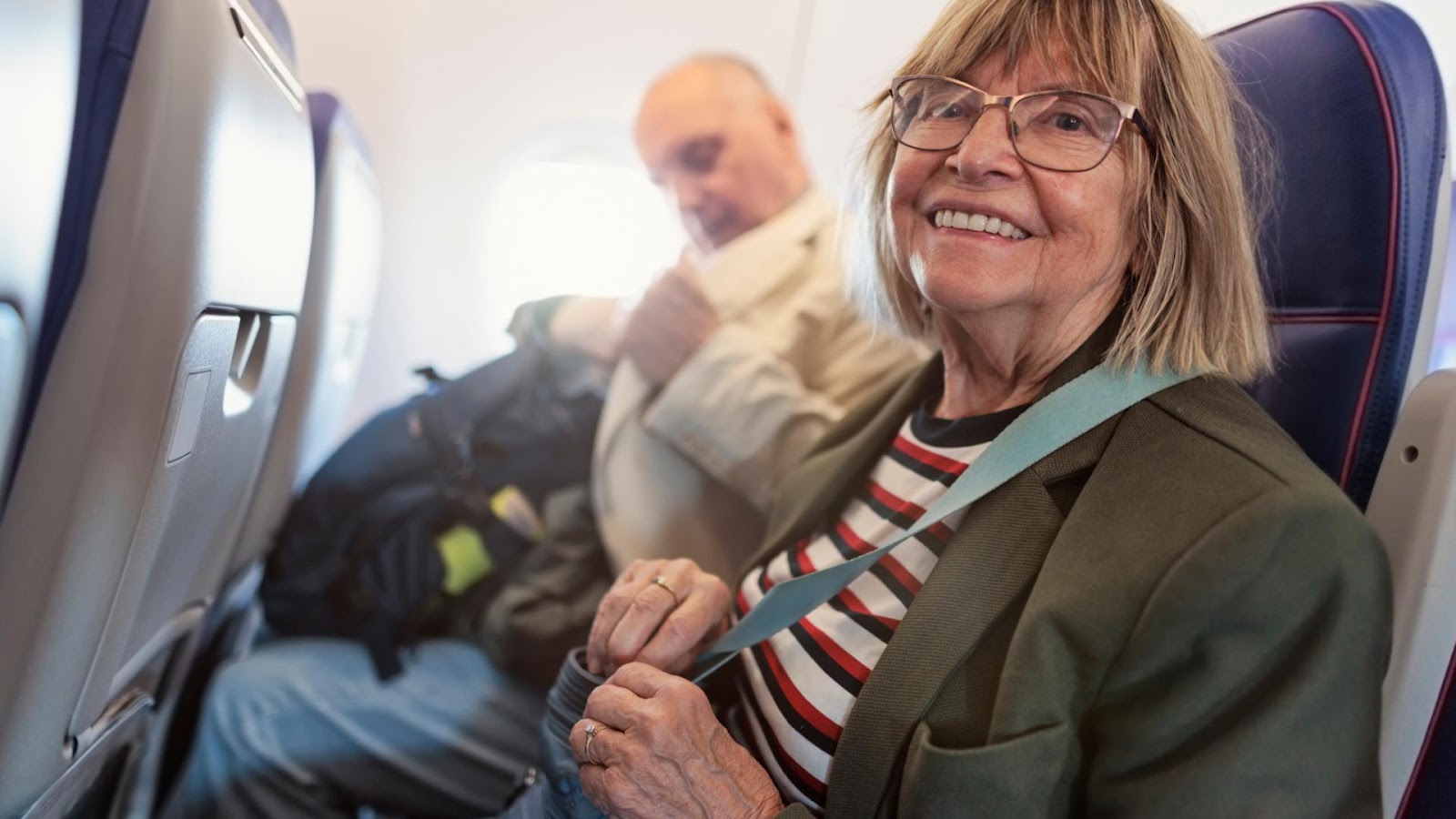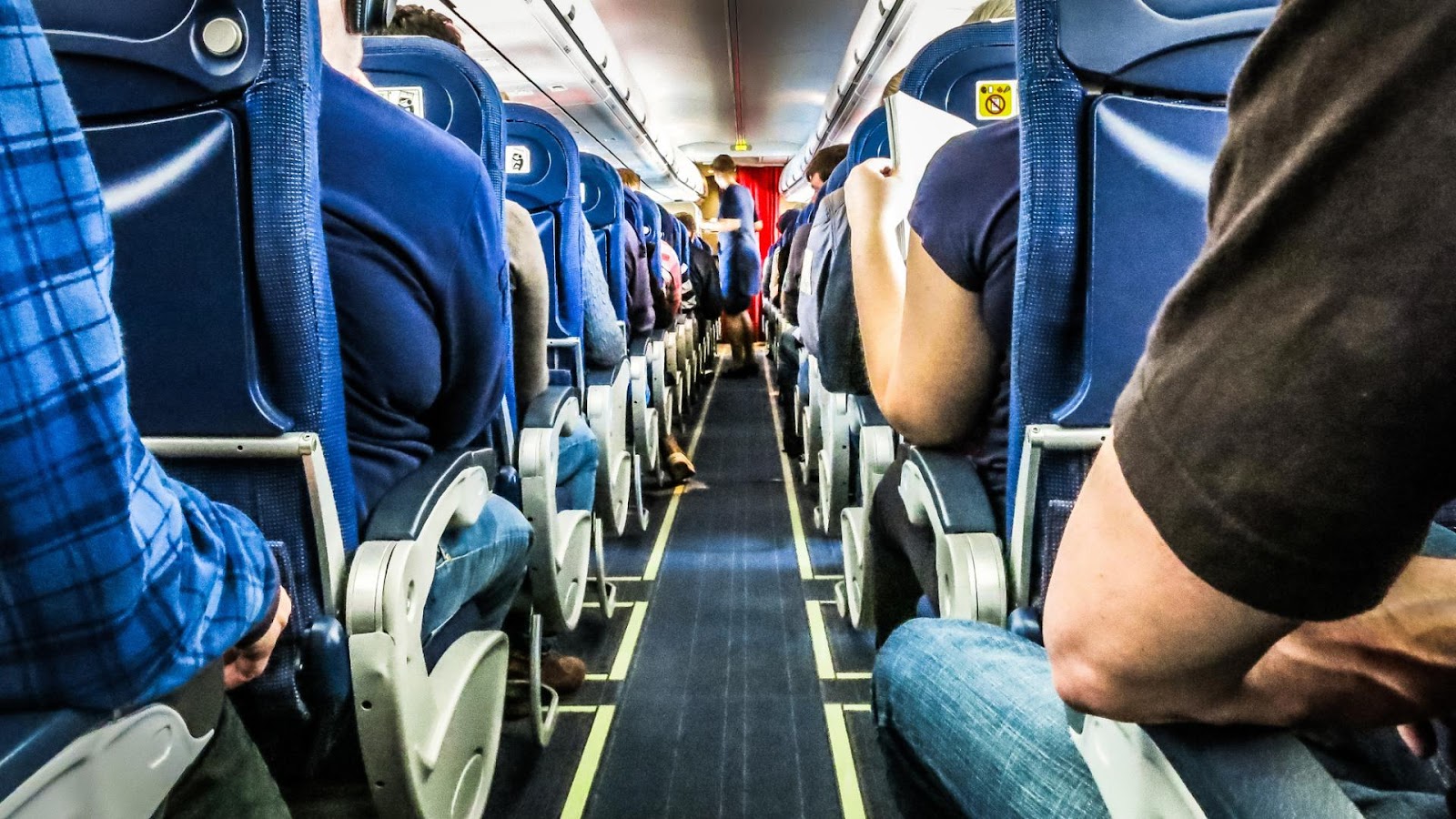Travel
How to survive 24 hours in economy (and, no, you’re never too old to fly)

Long-haul in economy isn’t glamorous, but it doesn’t have to be a total grind. Here’s how to survive 24 hours in the air – with your health, sanity and sense of humour intact.
By Paula Goodyer
More of us older adults are travelling, which can mean spending 24 hours in the air in a cramped environment that’s not easy on the body. Altitude can cause gas in the gut to expand, making us bloat; low humidity in the cabin can cause dehydration; and we’re awake and eating at times when we should be sleeping and fasting.
Does age make long-haul travel worse? Not according to travel medicine specialist Dr Eddy Barjovic. “I don’t think age comes into it. On its own, age isn’t a barrier to flying – only the health problems that might come with it,” he says.
This may include being more affected by things like:
- Reduced mobility or stiffness from sitting too long
- Increased risk of DVT (deep vein thrombosis risk increases after age 60)
- Dehydration (the older we get, the less likely we are to recognise thirst)
- Jet lag hitting harder and lasting longer (especially if you cross time zones)
- Underlying chronic conditions (e.g. diabetes, heart or respiratory issues) that need proactive management across time zones
To improve your chances for a comfortable flight, follow these expert tips from Dr Barjovic and dietitian Melissa Adamski’s to arrive in the best possible shape.
What to do before you go
Taking a few steps before you fly can make your long-haul journey more comfortable and possibly safer. Here's what to sort out before you take off.
- Try the aisle: Breaking up sitting time on long haul flights is easier if you book an aisle seat in advance so you can get up and move as much as possible.
- Book your meals: Check out the airline’s special meal options online if you need a meal such as gluten-free, vegetarian or vegan. You may need to book these in advance.
- Plan what to take on board: Along with hand sanitiser, noise cancelling headphones and an eye mask to help you sleep, take pressure stockings to help prevent DVT (deep vein thrombosis). Eye drops will soothe dry eyes caused by low humidity and low oxygen levels, says Dr Bajrovic, Medical Director of the travel health clinic, Travelvax Australia. That’s unless you’re on board a Boeing 787-9 Dreamliner, such as the Qantas Dreamliner, which has cabins with higher humidity and are pressurised at a lower altitude, he adds.
- Manage your health conditions: If you have diabetes, check with a GP, dietitian or diabetes educator to find out how crossing time zones and meal timing might affect blood sugar levels and how to keep levels even, says Melissa Adamski, a dietitian specialising in travel health from Nutted Out Nutrition in Melbourne. Check in with your GP about other health conditions like high blood pressure, asthma or arthritis, too.
More tips here: 8 mindful ways to make long haul travel accessible
Have a flight plan for your gut
“Get your gut into shape well before flying, to avoid going on board already bloated or constipated – especially if you’re prone to bloating or have IBS,” Melissa Adamski says.
She points out that flying at altitude with lower air pressure can increase bloating, but other factors contribute too – like being sedentary, or because digestion can be disrupted by eating when you should be sleeping.
“Eating a variety of nutritious foods including vegetables, fruit and wholegrains will help keep bowels working well,” Melissa suggests. “It helps to include fermented and probiotic-rich foods like yoghurt, kombucha, kefir, kimchi or sauerkraut about two weeks before you fly, but read the label on fermented products to check that they contain live bacteria.”
Know how to prevent DVT
Along with compression stockings, keeping moving during the flight will help prevent DVT, a blood clot that develops in a deep vein, usually in the leg.
“Besides walking around the cabin, keep legs moving at intervals while you’re sitting down – flex and extend them as if you were pushing pedals,” Dr Bajrovic says. ”There’s no good evidence that taking aspirin prevents DVT, but if you’ve already had DVT and your flight is more than four hours, see your GP for a prescription for an anti-coagulant.”

Eating and drinking on board
You can’t guarantee healthy food on board, especially with between-meal snacks that are often high in refined carbs like hot pastries, cake or crackers, says Melissa.
“If you’re hungry, ask if there’s any other option – some airlines keep fruit and healthier snacks available where passengers can help themselves. Or ask when the next meal is – perhaps you can wait. You can also bring your own fruit (but discard any leftovers before leaving the plane). Avoid bringing nuts though – unsalted nuts are great, but some airlines are starting to introduce nut-free policies in consideration of passengers with allergies.”
Melissa points out that for main meals there may not be much choice, but suggests fish as a good option if it’s available, especially if you also eat any vegetables and fruit on the meal tray.
“Stay hydrated with plenty of water (not fizzy water which can encourage bloating) and keep alcohol to a minimum or avoid it. It can contribute to dehydration and although it might help you fall asleep, it can also disrupt sleep,” she says.
Should you wear a mask?
“Passenger aircraft are fitted with High Efficiency Particulate Air (HEPA) filters which remove most bacteria and viruses, so there’s usually no need to wear a mask,” Dr Bajrovic says. “But a mask is a good idea if you’re seated close to someone who’s coughing or sneezing, either next to you or in the row immediately behind or in front. It’s also important to avoid picking up bugs lingering on surfaces – so keep washing hands or using hand sanitiser and avoid touching your face.”
How to minimise jet lag
Resist the urge to nap if you reach your destination in daylight. The best way to reduce jet lag is to stay awake, expose yourself to natural light and wait until dark before sleeping, says Dr Barjovic. If you need help to sleep, Dr Barjovi believes it’s okay to take a prescription sleeping pill (temazepam) or melatonin for a day or two after you arrive until you adjust to the new time.
Fly smart, land well
A 24-hour economy flight may never be a spa day, but with a little preparation and the right strategies, it can be far less punishing – no matter your age. From managing your meals and movement to planning for your gut and your sleep, these simple steps can make a big difference.
So don’t let the hours (or the legroom) put you off. Flying long haul might be challenging, but it’s also the ticket to seeing more of the world. And that’s worth a bit of extra planning.
Feature image: iStock/Imgorthand
More tips to travel far and wide:
